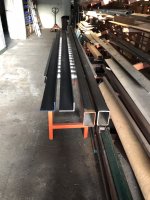My brother in law is mid level exec at a large company. They made computer equipment for cars and their goods were subject to a 25% tariff if not made in China. A few years ago he was tasked with opening up a factory in China and manage it for a few years. At the last minute (after they sold their house) it fell through. This is what he told me. For the company to open a factory it had to be jointly owned with a Chinese company. The Chinese company would own more than 50% of the plant. All trade secrets needed to make the plant run would have to be given to the Chinese company.
When the company started to dig deeper into it they found out that what often happens is once the Chinese partner has access to your patents and trade secrets within a short period of time other Chinese companies start making the same goods the same way you make them for less. If you try to go to court to stop them the Chinese government pretty much says "no infringement" and dismisses the case no matter how blatant it is. Once that happens the other all Chinese companies suddenly get financial help from the government and in a matter of years you can't compete with them forcing the company to just buy from an all China owned plant. The conclusion was that it was a long term looser so they backed out of it.
China has over a billion people and it's government is going to do everything it can to keep them working. If that means a 25% tariff on US made cars then that's what they will do unless forced to stop. The fact that we only have a 2.5% tariff on Chinese made cars is our fault. Either we feel the short term pain and force China (and other countries) to play by the same rules as we make them play by to do business here or we will find ourselves selling raw goods to other countries while others produce the final product. It'll be hard to have a middle class if we don't stop this now. As it is automation is not far off and will change the landscape once again in some areas.

